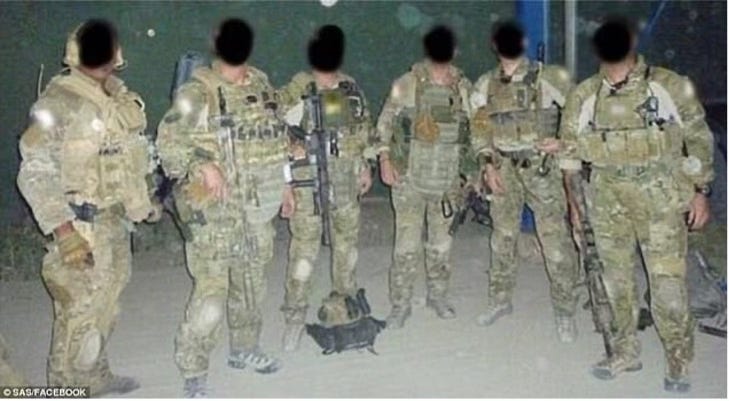SAS Soldiers Challenge High Court Ban in War Crimes Probe
A legal fightback launched after a High Court judge banned soliders from attending hearings. They say Lord Justice Haddon-Cave is acting 'unlawfully'.

In a dramatic legal battle unfolding at the Royal Courts of Justice, SAS soldiers have taken unprecedented steps to challenge a ruling barring them from attending hearings investigating alleged war crimes in Afghanistan, reports Mark Nicol, Daily Mail Defence Correspondent.
The soldiers, represented by the Ministry of Defence's Witness Legal Team (MODWLT), have accused Lord Justice Haddon-Cave of acting unlawfully and infringing upon principles of open justice.
The controversy stems from an inquiry launched two years ago, following allegations that SAS troops executed unarmed Afghans between 2010 and 2013. Haddon-Cave is heading an inquiry at the Royal Courts of Justice into claims the SAS committed war crimes in Afghanistan.
The inquiry, set up to examine the accusations, has employed confidential 'Green Hearings,' allowing whistleblowers to provide testimony anonymously and without public scrutiny. His approach has raised concerns among SAS soldiers, some of whom could potentially face murder charges, about the fairness and integrity of the proceedings.
At the heart of the soldiers' challenge is the assertion that the judge's decision to conduct secret hearings undermines the Inquiries Act 2005, which safeguards the rights of witnesses, particularly those who may later face criminal charges. The soldiers argue that such closed-door sessions risk allowing untested evidence to sway judgments, potentially compromising the pursuit of justice.
Colonel Hamish de Bretton-Gordon, a former British Army commander, underscored the gravity of the situation, emphasising the need for rigorous scrutiny while defending the soldiers' rights. He echoed widespread public support for the SAS veterans, highlighting a groundswell of almost 200,000 signatures on an online petition aimed at protecting veterans from legal repercussions related to their service during Operation Banner in Northern Ireland.
The legal manoeuvre, involving a Judicial Review application to challenge Haddon-Cave's ruling, could significantly delay the inquiry's outcome, which is not expected before 2027. This delay underscores the contentious nature of the proceedings and the high stakes involved for both the soldiers and the integrity of the judicial process.
Throughout this ordeal, the Ministry of Defence has maintained its support for personnel and veterans participating in the inquiry, affirming its commitment to upholding legal standards while investigating serious allegations. The outcome of the Judicial Review will likely shape the future trajectory of the inquiry, determining whether the pursuit of justice can be balanced with the rights and protections afforded to those accused.
The resolution of this legal challenge will undoubtedly be pivotal in shaping perceptions of justice and fairness in the context of military operations and international law.
Add your voice to support Operation Banner veterans by signing the petition: https://petition.parliament.uk/petitions/725716


I can see this turning into a can of worms. These soldiers have put their lives on the line. It’s seems to me that this is just judicial sport by an uncaring profession.
The SAS - very much the pride of Britain - are amongst the bravest and most dedicated people you could find anywhere in the world. They have made sacrifices beyond the imagination, let alone capability, of the majority of readers.
It's disgraceful that they are being treated in this manner, with a suggestion that they committed war crimes, to be judged by people who have probably never experienced the theatre of war or seen their comrades, their brothers, die next to them.
Meanwhile I see no inquiry into the possibility of a war crime having been committed by starting a war with Iraq, on the basis of WMDs that were never found, and countless other lies!
And illegal immigrants get housing priority over our brave veterans, people who have dedicated their lives to serving our country, the bureaucracy of which now turns against them in this disgusting manner.
These brave men have risked their lives to fight for their country. They should not now have to fight their country for their freedom.
I have signed the petition and I hope others will too.